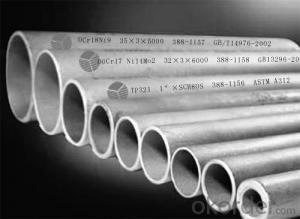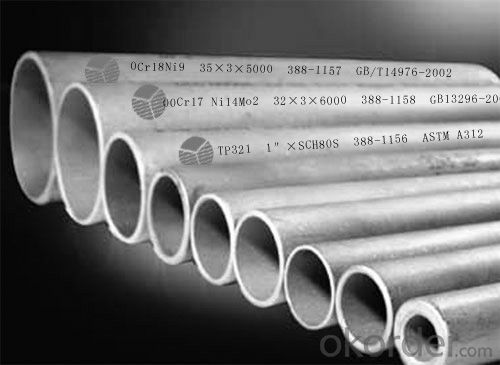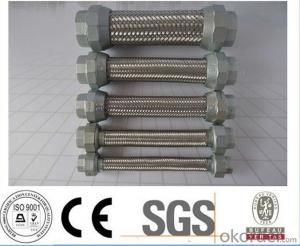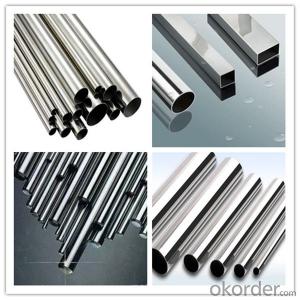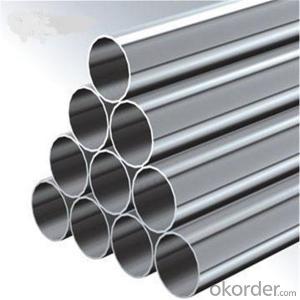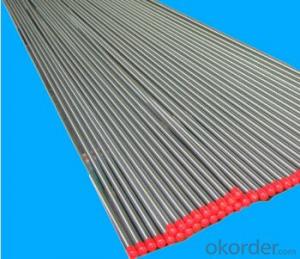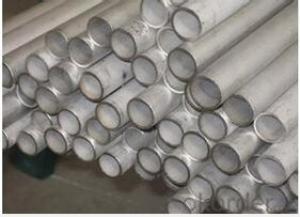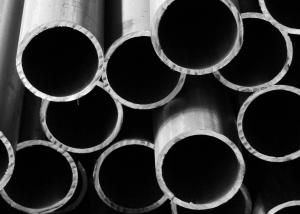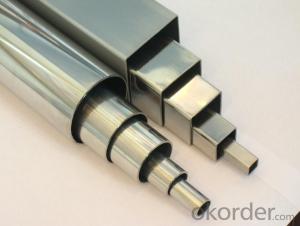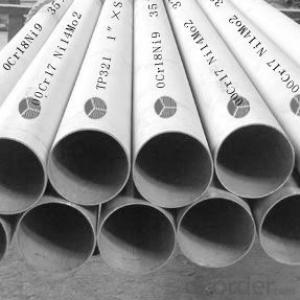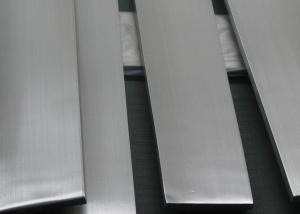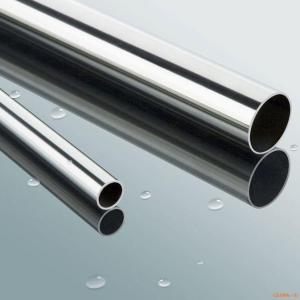Stainless Duplex Seamless Steel Pipe 31500
- Loading Port:
- Ningbo
- Payment Terms:
- TT OR LC
- Min Order Qty:
- 1 m.t.
- Supply Capability:
- 5000 m.t./month
OKorder Service Pledge
OKorder Financial Service
You Might Also Like
1、Structure of Stainless Duplex Seamless Steel Pipe 31500 Description:
Duplex Stainless steel pipe and tubing are used for a variety of reasons: to resist corrosion and oxidation, to resist high temperatures, for cleanliness and low maintenance costs, and to maintain the purity of materials which come In contact with stainless. The inherent characteristics of stainless steel permit the design of thin wall piping systems without fear of early failure due to corrosion.2、Main Features of the Duplex Seamless Steel Pipe 31500:
• High manufacturing accuracy
• High strength
• Small inertia resistance
• Strong heat dissipation ability
• Good visual effect
•Reasonable price
3、Duplex Seamless Steel Pipe 31500 Images:
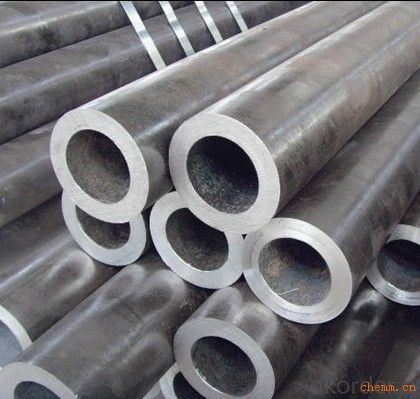
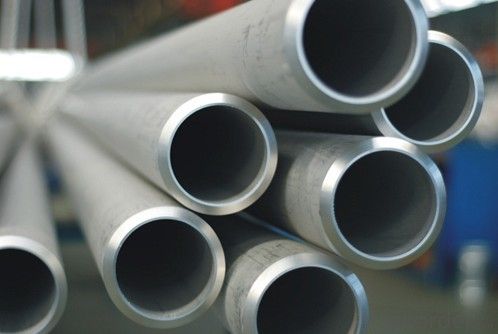
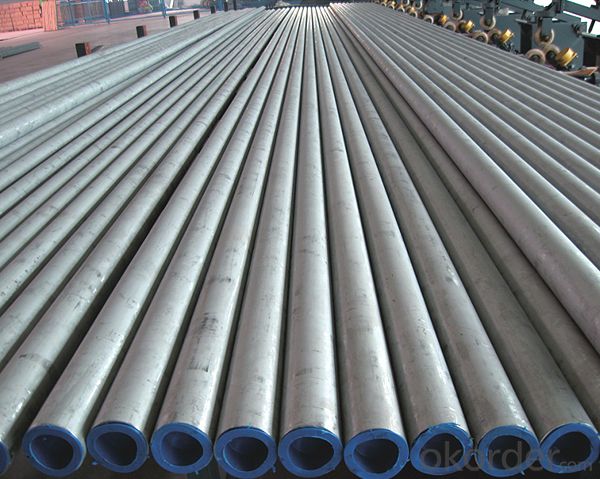
4、Duplex Seamless Steel Pipe 31500 Specification:
Detail infomation
Standards: ASTM/ASME A789/SA789, A790/SA790,A450,A530
Material: UNS S31803(Cr22Ni5Mo3/1.4462)/2205,UNS S32750(1.4410),UNS S31500(Cr18NiMo3Si2),
UNS32760(1.4501)
Chemical Composition
Grade | C max | Si max | Mn max | P max | S max | Cr | Ni | Mo | N |
UNS S32750 | 0.030 | 0.8 | 1.2 | 0.030 | 0.015 | 24.0-26.0 | 6.0-8.0 | 3.0-5.0 | 0.24-0.32 |
UNS S31803 | 0.030 | 1.0 | 2.0 | 0.020 | 0.020 | 21.0-23.0 | 4.5-6.5 | 2.5-3.5 | 0.08-0.20 |
UNS S31500 | 0.030 | 1.0 | 1.2-2.0 | 0.030 | 0.030 | 18.0-19.0 | 4.5-5.5 | 2.5-3.5 | 0.05-0.10 |
Physical Properties
Grade | Y.S.MPa min | T.S.Mpa min | Elongation % | Hardness HRC |
UNS S32750 | 550 | 800 | 15 | 20 |
UNS S31803 | 450 | 620 | 25 | 20 |
UNS S31500 | 440 | 630 | 30 | 20 |
Supplementary Testing :
we also carry out on the manufactured products supplementary testing.
Radiography Testing |
Macro Testing |
Liquid Penetrate testing |
5、FAQ of Duplex Seamless Steel Pipe 31500:
①How is the quality of your products?
Our products are manufactured strictly according to national and internaional standard, and we take a test
on every pipe before delivered out. If you want see our quality certifications and all kinds of testing report, please just ask us for it.
Guaranteed: If products’ quality don’t accord to discription as we give or the promise before you place order, we promise 100% refund.
②How about price?
Yes, we are factory and be able to give you lowest price below market one, and we have a policy that “ for saving time and absolutely honest business attitude, we quote as lowest as possible for any customer, and discount can be given according to quantity”,if you like bargain and factory price is not low enough as you think, just don’t waste your time.Please trust the quotation we would give you, it is professional one.
③Why should you chose us?
Chose happens because of quality, then price, We can give you both.Additionally, we can also offer professional products inquiry, products knowledge train(for agents), smooth goods delivery, exellent customer solution proposals.Our service formula: good quality+good price+good service=customer’s trust
SGS test is available, customer inspection before shipping is welcome, third party inspection is no problem.
Any question, pls feel free to contact us !
- Q: Can stainless steel pipes be insulated with polytetrafluoroethylene?
- Yes, stainless steel pipes can be insulated with polytetrafluoroethylene (PTFE). PTFE is a high-performance polymer known for its excellent thermal and chemical resistance. It can withstand a wide temperature range (-200°C to +260°C) and is highly resistant to corrosion and chemical attack. These properties make PTFE a suitable material for insulating stainless steel pipes in various industrial applications. When used as insulation for stainless steel pipes, PTFE can provide thermal insulation to prevent heat loss or gain. It helps maintain the desired temperature of the fluid flowing through the pipes, which is crucial in applications where temperature control is essential, such as in chemical processing plants or food processing facilities. PTFE insulation also acts as a barrier against condensation, preventing moisture build-up on the pipe's surface. Furthermore, PTFE's low friction coefficient makes it easier for liquids to flow through the pipes, reducing pressure drop and improving overall system efficiency. It also has excellent electrical insulation properties, which can be advantageous in applications where electrical conductivity needs to be avoided. Overall, PTFE is a reliable and effective insulation material for stainless steel pipes, providing thermal, chemical, and electrical insulation properties, as well as corrosion resistance.
- Q: How do you prevent leaks in stainless steel pipes?
- To prevent leaks in stainless steel pipes, there are various measures that can be taken: 1. Ensuring proper installation: It is crucial to correctly install stainless steel pipes, which involves using suitable fittings and connectors, securely fastening the pipes, and following the installation guidelines provided by the manufacturer. 2. Regular inspection and maintenance: Regularly inspecting stainless steel pipes can help identify any signs of wear, corrosion, or damage that may potentially result in leaks. This can be done through visual inspection or by utilizing non-destructive testing methods like ultrasonic testing. 3. Implementing corrosion prevention measures: While stainless steel pipes are known for their corrosion resistance, certain conditions can still lead to corrosion and potential leaks. The risk can be significantly reduced by implementing corrosion prevention measures such as using corrosion-resistant coatings, cathodic protection systems, or inhibitors. 4. Proper cleaning and maintenance: Regularly cleaning and maintaining stainless steel pipes can help eliminate accumulated debris, dirt, or chemicals that may cause corrosion or damage. This can be achieved by using appropriate cleaning agents and techniques recommended by the manufacturer. 5. Conducting pressure testing: Performing pressure tests on stainless steel pipes is an effective way to identify any weak points or potential leaks. This involves applying pressure to the pipes and monitoring for any pressure drop, which could indicate a leak. Pressure testing should be carried out during installation and periodically thereafter. 6. Controlling temperature: Extreme temperatures can cause thermal expansion or contraction of stainless steel pipes, which may lead to leaks. To prevent this, proper insulation, installation of expansion joints, or utilization of flexible connectors can be employed to accommodate these temperature changes. 7. Regular monitoring and repair: It is crucial to establish a system for regularly monitoring stainless steel pipes for any signs of leaks or damage. This can include periodic inspections, leak detection systems, or remote monitoring technologies. Promptly repairing any identified issues can prevent further damage and potential leaks. By adhering to these preventive measures, the risk of leaks in stainless steel pipes can be significantly minimized, ensuring their durability and preserving the integrity of the system they are a part of.
- Q: How are stainless steel pipes made?
- The process of manufacturing stainless steel pipes, known as stainless steel pipe manufacturing, involves several steps to produce durable and corrosion-resistant pipes suitable for various applications. To begin, stainless steel, the raw material, is carefully selected based on its composition and desired properties such as strength, corrosion resistance, and heat resistance. Stainless steel is primarily made up of iron, chromium, and other elements like nickel and molybdenum. Once obtained, the stainless steel is melted in an electric furnace at extremely high temperatures. The molten steel is then poured into molds to form solidified cylindrical bars called billets or ingots. The next step is to heat the billets or ingots in a furnace to make them more malleable. This process, called hot rolling, involves passing the heated billets through rollers to reduce their diameter and thickness. Continuous rolling refines the grain structure of the stainless steel and improves its mechanical properties. After hot rolling, the stainless steel is annealed by heating it to a specific temperature and gradually cooling it. Annealing relieves internal stresses and enhances the steel's ductility and toughness. The annealed stainless steel then undergoes cold rolling, where it is passed through rollers at room temperature. This further reduces the diameter and thickness of the stainless steel, resulting in a smoother surface finish and tighter tolerances. Once the desired dimensions are achieved, the stainless steel is either welded or manufactured into seamless pipes, depending on the type of pipe being produced. For welded stainless steel pipes, the cold-rolled stainless steel strip is formed into a cylindrical shape and then longitudinally welded using techniques like TIG or MIG welding. This welding process ensures the pipe's integrity and strength. On the other hand, seamless stainless steel pipes are made by piercing a solid cylindrical billet or ingot to create a hollow tube. This piercing process involves using a mandrel to create a cavity in the billet. The pierced billet is then elongated, rolled, and cut to the desired length and diameter. After the pipes are formed, they undergo various finishing processes such as heat treatment, pickling, passivation, and polishing. These processes enhance the pipes' corrosion resistance, remove surface impurities, and improve their aesthetic appearance. In conclusion, stainless steel pipes are manufactured through melting, hot rolling, annealing, cold rolling, welding or seamless pipe manufacturing, and various finishing processes. This meticulous production process ensures the production of high-quality stainless steel pipes that meet required specifications and standards.
- Q: Is galvanized steel pipe stainless steel pipe?
- Galvanized steel pipe is a kind of welded steel pipe, and its essence is hot-dip galvanized coating on the inner and outer surface of welded steel pipe. Hope to be of help to you.
- Q: How do you prevent galvanic corrosion in stainless steel pipes?
- To prevent galvanic corrosion in stainless steel pipes, it is crucial to avoid direct contact with dissimilar metals. This can be achieved by using appropriate insulation or protective coatings on the pipes, ensuring that they do not come into contact with materials such as copper or aluminum. Additionally, employing dielectric unions or isolating gaskets at the connection points can help to minimize the risk of galvanic corrosion. Regular maintenance, including inspection and cleaning, is also essential to identify and address any potential issues before they escalate.
- Q: How do stainless steel pipes perform in corrosive environments?
- Stainless steel pipes excel in corrosive environments, owing to the presence of chromium in their composition. This imparts high resistance to corrosion and oxidation, making them ideal for applications where exposure to corrosive substances like acids, chemicals, and saltwater is common. The chromium in stainless steel creates a protective layer on the pipe's surface, known as the passive layer. This shield effectively prevents the underlying metal from being affected by corrosive elements. Consequently, stainless steel pipes can endure prolonged exposure to corrosive environments without degradation or loss of structural integrity. Moreover, stainless steel pipes exhibit excellent resistance to pitting corrosion. This occurs when localized damage to the passive layer leads to the formation of small pits or holes on the surface. This resistance further enhances their reliability and durability in corrosive environments. Additionally, stainless steel pipes possess other advantageous properties such as strength, durability, and high temperature resistance. These attributes contribute to their preference in industries like chemical processing, oil and gas, marine, wastewater treatment, and more. In summary, stainless steel pipes are renowned for their exceptional performance in corrosive environments. Their resistance to corrosion, pitting, and high temperatures, alongside their durability and strength, make them a dependable and cost-effective choice for applications requiring corrosion protection.
- Q: Can stainless steel pipes handle acidic or alkaline fluids?
- Yes, stainless steel pipes can handle both acidic and alkaline fluids. Stainless steel has excellent corrosion resistance properties, making it suitable for various applications involving these types of fluids.
- Q: What are the common applications for stainless steel pipes?
- Stainless steel pipes have a wide range of applications due to their unique properties and versatility. Some of the common applications for stainless steel pipes include: 1. Plumbing and water supply systems: Stainless steel pipes are commonly used in plumbing and water supply systems due to their corrosion resistance and ability to withstand high pressure. They provide a reliable and long-lasting solution for transporting water and other fluids. 2. Oil and gas industry: Stainless steel pipes are extensively used in the oil and gas industry for transporting oil, gas, and other hydrocarbons. They can withstand high temperatures and pressures, making them suitable for exploration, production, and transportation of these resources. 3. Food and beverage industry: Stainless steel pipes are widely used in the food and beverage industry due to their hygienic properties and resistance to corrosion. They are commonly used for transporting liquids, such as milk, juices, and processed foods, ensuring the safety and quality of the products. 4. Chemical and pharmaceutical industry: Stainless steel pipes are highly resistant to corrosion, making them ideal for the chemical and pharmaceutical industry. They are used for transporting various chemicals, acids, and solvents, ensuring the integrity of the substances being transported. 5. Construction and architecture: Stainless steel pipes are used in construction and architectural applications due to their aesthetic appeal and structural strength. They are often used for handrails, balustrades, structural columns, and decorative applications, adding a modern and sleek look to buildings. 6. Automotive industry: Stainless steel pipes are utilized in the automotive industry for exhaust systems due to their heat resistance and durability. They can withstand high temperatures and corrosive gases, ensuring the efficient operation of the exhaust system. 7. Power generation: Stainless steel pipes are used in power plants for transporting steam, water, and other fluids. They are resistant to high temperatures and pressures, making them suitable for power generation applications. 8. Aerospace industry: Stainless steel pipes are utilized in the aerospace industry for various applications, including aircraft exhaust systems, hydraulic systems, and fuel lines. They offer high strength-to-weight ratio, corrosion resistance, and reliability, meeting the stringent requirements of the aerospace industry. In summary, stainless steel pipes find applications in various industries due to their corrosion resistance, durability, and versatility. They are used in plumbing, oil and gas, food and beverage, chemical and pharmaceutical, construction, automotive, power generation, and aerospace industries, among others.
- Q: Are stainless steel pipes suitable for fertilizer production?
- Yes, stainless steel pipes are suitable for fertilizer production. Stainless steel pipes offer a number of advantages that make them a preferred choice for use in the fertilizer industry. Firstly, stainless steel pipes are highly resistant to corrosion, which is particularly important in the production of fertilizers. Fertilizer production involves the use of chemicals and substances that can be highly corrosive, such as ammonia, sulfuric acid, and phosphoric acid. Stainless steel pipes can withstand the corrosive effects of these substances, ensuring the integrity and longevity of the piping system. Additionally, stainless steel pipes have excellent strength and durability, making them able to withstand the high pressures and temperatures often encountered in fertilizer production processes. This ensures the safe and efficient transportation of the fertilizer materials within the production plant. Furthermore, stainless steel pipes are hygienic and easy to clean, which is crucial for maintaining the purity of the fertilizer products. Stainless steel has a smooth surface that resists the buildup of bacteria, dirt, and other contaminants, ensuring that the pipes do not contaminate the fertilizer during production. Lastly, stainless steel is a sustainable and environmentally friendly material. It is 100% recyclable, making it a more sustainable choice compared to other pipe materials. Additionally, stainless steel has a long lifespan, reducing the need for frequent replacements and minimizing waste. In conclusion, stainless steel pipes are highly suitable for fertilizer production due to their corrosion resistance, strength, durability, hygienic properties, and environmental benefits.
- Q: Are stainless steel pipes suitable for mining industries?
- Stainless steel pipes are extensively utilized and deemed appropriate for the mining sector. The mining industry necessitates materials that can withstand harsh and corrosive environments, and stainless steel is widely recognized for its exceptional resistance to corrosion. This quality is especially significant in mining operations as pipes are constantly exposed to various chemicals, minerals, and water, which can hasten the corrosion procedure. Moreover, stainless steel pipes possess remarkable durability and can endure extreme temperatures, rendering them suitable for the demanding conditions encountered in mining activities. Furthermore, these pipes offer elevated strength and reliability, ensuring the secure and efficient transportation of fluids, gases, and slurries throughout the mining process. Consequently, stainless steel pipes are the preferred choice in the mining sector due to their corrosion resistance, durability, and strength, establishing them as a dependable and long-lasting alternative for mining operations.
Send your message to us
Stainless Duplex Seamless Steel Pipe 31500
- Loading Port:
- Ningbo
- Payment Terms:
- TT OR LC
- Min Order Qty:
- 1 m.t.
- Supply Capability:
- 5000 m.t./month
OKorder Service Pledge
OKorder Financial Service
Similar products
Hot products
Hot Searches
Related keywords
